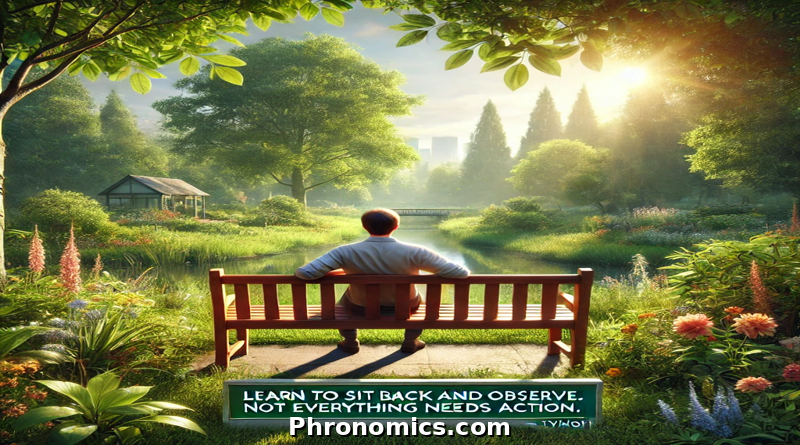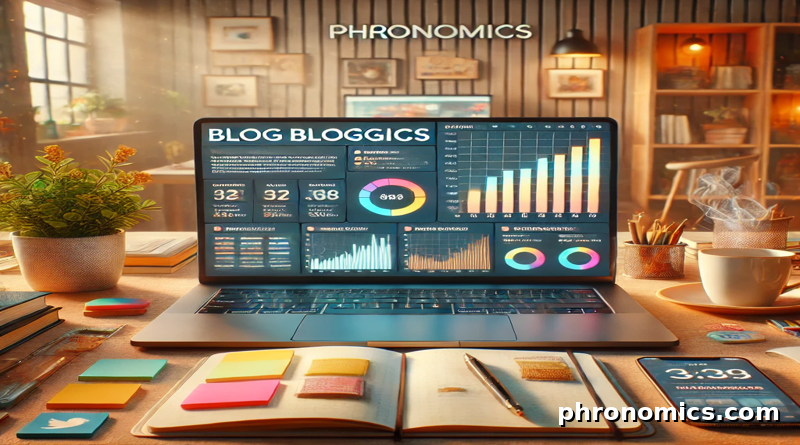In today’s fast-paced world, learn to sit back and observe. not everything need – tymoff is a crucial skill that can transform our lives. The world we are a part of has never paused to give people some time to think and absorb, which is the case more often than not. But with our eyes open, and with every step taken back as a attempt to become an observer of our society and the world, we are able to benefit from relieving stress and improving decision-making.
Understanding the Power of Observation
Observation is not just a targeted conscious and deliberate act of watching and perceiving; it is being attentive and ready to get involved in an activity. It means being keen, observing as well and appreciating complex ways of things and the forces that govern them.
This practice can significantly enhance various aspects of our lives, including:
- Improved Decision-Making: Sit back and relax, this need tymoff, other than gathering important information that can be useful in decision making we get to analyze all the possible effects of such decisions. Instead of acting impulsively and without much thought we can have time for reflection and objective analysis as to what will serve us best at the moment.
- Enhanced Problem-Solving Skills: This is a fundamental approach of looking into and analyzing a problem to get right at the core of it rather than the veneer. Learn to sit back and observe. not everything need – tymoff allows us to identify patterns, understand the interconnectedness of different elements, and develop creative solutions that address the underlying issues.
- Increased Emotional Intelligence: Managing emotions of ourselves and managing our understanding of the emotions of others is important in interpersonal relationships. That is why, we should focus on paralinguistic features, gestures, and tone, in order to define the affective frame of a given scenario.
- Reduced Stress and Anxiety: In today’s society where people are constantly connected; it is not hard to feel stressed and pressured. Learn to sit back and observe. not everything need – tymoff can help us slow down, appreciate the present moment, and cultivate a sense of inner peace. They can also help free ourselves from the past or future, and stay calm in the moment.
- Boosted Creativity: Observation is one of those imaginative ways through which an individual can generate new ideas and be inspired at that same time. So getting out and actively engaging with the environment can help see past patterns, as well new associations none have seen before.
Practical Tips for Cultivating Observation
- Mindful Meditation: Identity of mindfulness as awesome from and unrelated to formal practices like mediation and deep breathing physical activities and that could useful for the strategies used to enhance one’s statement capabilities and/or wellknown well-being. By using focusing on our breath and bodily sensations, we can quiet the mind and emerge as extra attuned to the prevailing moment.
- Journaling: Taking account of oneself is probably one of the best strategies of growing the capability to take a look at. In turn, practice of reflecting on thoughts, feelings and experiences suggests underlying regular patterns and provides new ways of perceptions of own and other selves.
- Nature Walks: One good way to do this is to spend time outside because this will greatly help in the improvement of a person’s observation. Observe everything as the countless lines in a piece of fabric or on a face or a woman’s hair or the swirling flight of a bird in the sky.
- People-Watching: The observation should be done by focusing on how people in the public places are related to each other. The demeanour of members and how they feel about each other is best explained observed via the signals displayed through the body gestures, and postures, frowning or smiling, talking or avoiding touching each other. This can be helpful to shed light to the nature of human being and society in general.
- Digital Detox: Take regular breaks from technology to free your mind from constant stimulation. Use this time to learn to sit back and observe. not everything need – tymoff the world around you, reflect on your thoughts and feelings, and reconnect with yourself.
Overcoming Obstacles to Observation
- Let yourself some time just to look at things and just watch the world go by without having to do anything or produce anything.
- Fear of Missing Out (FOMO): One can easily become trapped in this endless flow of information and start to think that they are losing something. However, it is much more effective to take a step back and using passive observation to figure out what lays most important to people.
- Perfectionism: It is not necessary to polish cam or observations to avod rough edges. It is enough to be open to what the world is offering to you at a particular moment.
- Distractions: Reduce interference or interference by selecting a quite place and free from interferences for observation. Silence the phone, look for a good place to sit and be present in the moment, let your thoughts fade away.
The Benefits of Observation in Everyday Life
Observation can be applied to many areas of your life, including:
- Personal Relationships: In this case, you can learn your partner’s communication pattern, their moods, and their requirements to make the relationship more wholesome.
- Career: Cultivating awareness of the strengths and limitations of fellow employees and the learning of factors for change all play a role in personal career development.
- Health and Wellness: In other words the body is a pilot and if you listen to it carefully, you will be able to kind of diagnose the self and avoid some of these disease indicating signs.
- Creativity: Given that observation involves keen surveillance of environment and event around you, it can ignite creativity since you instantly get lots of idea and sources to draw your creativity from.
- Problem-Solving: To elaborate it, more efficient and long-term approaches can be achieved when identifying the fundamental reason of an issue.
- Decision-Making: Learn to sit back and observe. not everything need – tymoff before making important decisions. This will lead to the gathering of information, the consideration and analysis of all the parties involved and a corresponding decision making process.
A Step-by-Step Guide to Cultivating Observation
- Start Small: Begin by observing small, everyday things. Observe features of the environment, relationships between people or elements of nature and its laws.
- Set Aside Time: Dedicate specific times for observation. It proved beneficial to keep in mind that devoting even five-10 mins to assignment work each day can pass an extended manner.
- Practice Mindfulness: Contain mindfulness practices into your every day recurring to improve your consciousness and focus.
- Ask Questions: To do this, one can carry out questioning within the society in order foster curiosity. Why is everything as it is? What is the cause and what is the resultant effect?
- Reflect on Your Observations: Pause for some time to think over them. What have you learned? There is quite a lot one can learn from these insights, but in short, how can one incorporate these ideas into one’s life?
The ability to observe effectively can be hugely beneficial, it enables an increased understanding of both the self and the surrounding environment, can help deal with stress, and enhance decision making skills leading to a more satisfying existence. So, take a moment to learn to sit back and observe. not everything need – tymoff. You might be surprised at what you discover.
FAQs: Learn to Sit Back and Observe
Q: What does “learn to sit back and observe. not everything need – tymoff” mean?
A: This phrase emphasizes the importance of slowing down and carefully observing situations before reacting. It suggests that not every event or situation requires an immediate response or action.
Q: How does observation improve decision-making?
A: By observing a situation carefully, you can gather more information, identify potential outcomes, and make more informed choices.
Q: How can one really develop observation skills in simplest terms such as not forgetting important things?
A:
- Mindful Meditation: Use deep breathing exercises to enhance few seconds, few minutes and few hours presence.
- Journaling: keep writing or typing to keep track of what you are experiencing, the emotions you experience and what you notice on a regular basis.
- Nature Walks: Setting aside some time to go into the outdoors and become observant of all that you come across.
- People-Watching: Watch people’s behavior in public places in order to know about people behaviors.
- Digital Detox: Take breaks from technology to free your mind from distractions and allow for deeper observation.
Q: How can observation help reduce stress?
A: As a form of active engagement in the current time and context, observation chases away most of the worrying and anxious thoughts, thus having a very powerful effect of an edited mental state, a state of peace.
Q: Does one have to be perfect when observing?
A: No, striving for perfection can hinder the observation process. Be aware of the environment and do not form opinions on it.
Q: What must be done in order to deal with FOMO while observation?
A: As you realize, true happiness is not to chase something constantly; this chasing is minutes, hours, or days away from the present time.
Q: Can observation help improve my relationships?
A: Yes, by observing your partner’s communication style and emotional cues, you can build stronger, more understanding relationships.
Q: How can I start incorporating observation into my daily life?
A: Begin with small, everyday observations. Notice the details of your surroundings, the way people interact, or the patterns in nature. Gradually increase the duration and intensity of your observation practices.
Conclusion
In today’s fast-paced world, the ability to learn to sit back and observe. not everything need – tymoff is more valuable than ever. Observation thus leads to improved knowledge about ourselves and the environment, enhance our decision making process, leads to reduction of stress and leads to improved well being among other gains.
However, as stressed in this paper, observation is not equal to mere looking; rather, it is a process of being in the present. It’s more than just gaze direction; it also involves perception and conceptualization of some events or environment. This tells us that with observation in our everyday environment can expand our lives and make them fuller.










